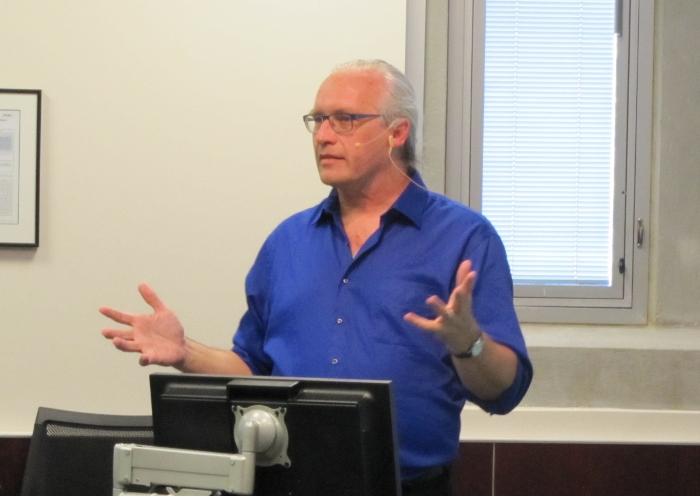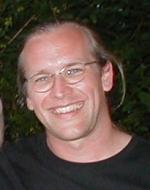NIMBioS Seminar Series
In conjunction with the interdisciplinary activities of the National Institute for Mathematical and Biological Synthesis (NIMBioS), a seminar series on topics in mathematical biology will be hosted at NIMBioS every other Tuesday at 3:30 p.m. (unless otherwise noted) in the Hallam Auditorium, Room 206, Claxton Building, 1122 Volunteer Blvd. Seminar speakers will focus on their research initiatives at the interface of mathematics and many areas of the life sciences. Light refreshments will be served in Room 205 beginning 30 minutes before each talk. Faculty and students from across the UT community are welcome to join us.
Speaker:
Dr. Michael Whitlock, Zoology, Univ. of British Columbia, Vancouver; NIMBioS Postdoctoral Fellows Invited Distinguished Visitor
Time/Date: Tuesday, April 12, 2016, 3:30*
Location:
Room 206, Claxton Building, 1122 Volunteer Blvd.
Topic:
Selection in complex spatial settings
Abstract:
The fact that the individuals in each species are spread over space with limited dispersal means that evolutionary processes are all to some extent local. In this talk I will discuss some ways in which the basic processes of evolution—especially selection and drift—are substantially changed by their spatial context. In spatially structured populations (compared to the panmictic populations that are better studied), deleterious alleles are likely to be more effectively removed by selection at equilibrium. In contrast, in non-equilibrium populations expanding over space, deleterious alleles can reach locally high frequencies through allelic surfing.
The "expansion load" that results can be a substantial burden on the mean fitness of a population. I will explore the interaction between deleterious mutations and spatially heterogeneous selection in determining the rate of population range expansion and the amount of genetic load that results.
Michael Whitlock is a theoretical population geneticist who studies the effects of spatial subdivision on the evolutionary process. Whitlock has described the effects of space on, for example, the effective population size, fixation of new alleles, mutation load, and inbreeding depression. He has also developed new statistical approaches to use genetic data to infer demographic and evolutionary parameters, including measuring effective population size and inferring genes responsible for local adaptation. Whitlock is the former Editor-in-Chief of The American Naturalist, where he helped usher in the joint data archiving policy among evolution and ecology journals. He is a professor of Zoology at the University of British Columbia, where he has been for 21 years. He received his PhD from Vanderbilt University and did post-docs at the University of Chicago, the University of Edinburgh, and WWF-Indonesia.
*Join us for refreshments at 3 p.m.
Seminar Flyer (pdf)
![]() Live Stream.
Unless otherwise noted, NIMBioS seminars are streamed live.
To view the live stream, visit /videos/livestream.
Join the live chat of the seminar via Twitter (#nimbios), which is displayed to the right of the live stream
We encourage you to post questions/comments and engage in discussion with respect to our Social Media Guidelines.
Live-streamed seminars are archived for later viewing on NIMBioS' YouTube channel.
Live Stream.
Unless otherwise noted, NIMBioS seminars are streamed live.
To view the live stream, visit /videos/livestream.
Join the live chat of the seminar via Twitter (#nimbios), which is displayed to the right of the live stream
We encourage you to post questions/comments and engage in discussion with respect to our Social Media Guidelines.
Live-streamed seminars are archived for later viewing on NIMBioS' YouTube channel.
For more information about this and other NIMBioS Seminars, visit /seminars.

NIMBioS
1122 Volunteer Blvd., Suite 106
University of Tennessee
Knoxville,
TN 37996-3410
PH: (865) 974-9334
FAX: (865) 974-9461
Contact NIMBioS



